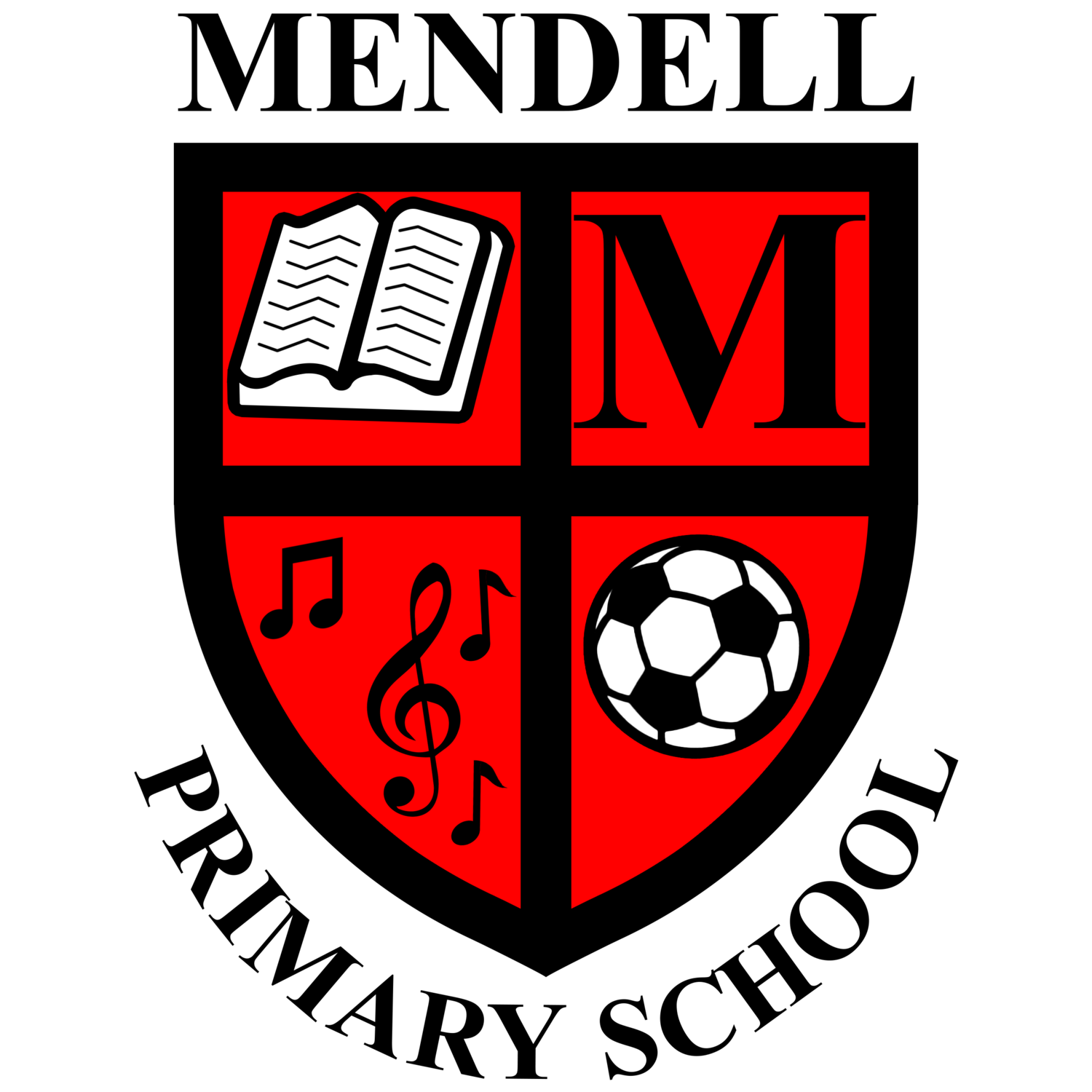
English at Mendell Primary School
English is learning to read, write, speak and listen
Mendell’s vision for English is that all our children will learn to read by the age of seven. Through effective synthetic systematic phonics we learn to read, then at age 7, when all our children can effectively read, they then read to learn. If a chid is not able to read by age 7, intensive support is put in place to enable them to catch up quickly. Through effective English teaching and a well planned curriculum, our children acquire the necessary knowledge, skills and understanding to become lifelong learners and linguists. We strive to ensure that all our pupils receive a wide learning experience when reading, writing, speaking and listening which will equip them with the fundamental tools to achieve at Mendell Primary and beyond. It is our intention to immerse pupils in the wonders of quality texts to instil a love for reading, a passion for discovery and a confidence to explore their imagination through our Book-Led curriculum. Reading, Writing and Communication are central to the curriculum offered at Mendell Primary School. We aim to provide thoroughly engaging experiences for children throughout the school so that they can read, write and speak fluently, communicating their ideas and emotions to others.
Early Years and English
Our curriculum starts from EYFS and is progressive throughout Early Years, KS1, lower KS2, upper KS2 and beyond, which is why we teach Little Wandle Phonics from F1 (phase 1) to Y2 and beyond for children that need specific phonics support. F2 and Y1 follow the Little Wandle three day reading process of segmenting and blending, prosody and comprehension before the children then take the book home to read with parents to practise fluency. This then allows for a smooth transition from Y2 to Y6 to follow Pathways to Read and Pathways to Spell. Pathways to Write is taught from F2 through to Year 6, which provides a secure foundation for learners across the school.
In Nursery, we focus primarily on the Prime Areas however, we recognise the importance of starting curriculum learning in all subjects with our three year olds. The children develop physical skills through disco dough, ribbon dancing and tweezer work building the muscles ready for writing. The children begin to write their names. After Little Wandle phase 1 group sessions have been taught activities are set in within the environment for the children to apply their skills independently. Practitioners engage children with stories, rhymes and songs to develop language skills and foster a love of reading from the earliest point.
Continuous Provision activities are set up to provide an enriched learning environment for children to independently apply phonics learning and develop ‘Characteristics Of an Effective Learner’. The practitioners within the environment provide regular reading and writing opportunities for example writing a list in the home area or labelling a building plan in the block area.
The children also apply their writing skills during a weekly adult led activity were the practitioner models how to write sentences and thinks aloud like a writer. Vocabulary and language development is key within our setting and our well-trained practitioners ask the children questions, role play with the children and sing songs throughout the day. Regular discussions about previous learning take place to help the children know more and remember more in all areas of ‘Development Matters 2020’.
For more information about our Writing, Phonics and Reading curriculum just click below:
Intent and curriculum aims
read fluently and with good understanding by the age of 7
develop the habit of reading widely and often, for both pleasure and information
acquire a wide vocabulary, an understanding of grammar and knowledge of linguistic conventions for reading, writing and spoken language
write clearly, accurately and coherently, adapting their language and style in and for a range of contexts, purposes and audiences
use discussion in order to learn; being able to elaborate and explain clearly their understanding and ideas
children are competent in the arts of speaking and listening by: making formal presentations, engaging in debate, drama, role-play, storytelling and discussion.
For further information, please contact our English lead Mrs Eason via the school office.
The lead governor for English is Mr C Bennett
Year 4 have been enjoying reading in our new library this term






